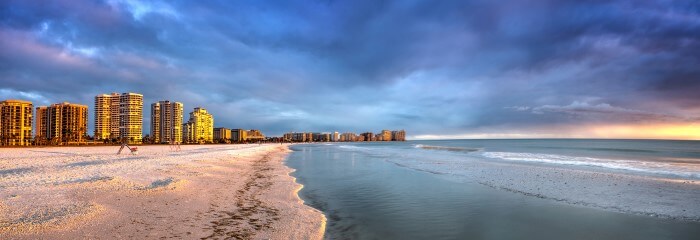Marco Island short-term rental ordinance canceled by state law
- Oct 17, 2023 | Jennifer Sokolowsky

A short-term rental (STR) ordinance in Marco Island, Florida, has been nullified due to a state law passed during the 2023 legislative session in response to hurricane-related disasters.
According to Marco Island City Attorney Alan Gabriel, Section 14 (1) of Senate Bill 250 states that a “municipality located entirely or partially within 100 miles of where either Hurricane Ian or Hurricane Nicole made landfall shall not propose or adopt any moratorium on construction, reconstruction or redevelopment of any property damaged by either hurricane, nor may a municipality propose or adopt more restrictive or burdensome amendments to its comprehensive plan or land development regulations.”
Gabriel advised the City Council that the state legislation prohibits implementation of the city’s short-term rental ordinance. These regulations would have required STR operators to register their properties and curb noise, among other rules.
The program was approved by 56% of Marco Island voters in a referendum on August 23, 2022, and the law was approved by the City Council in December 2022. The new rules were supposed to go into effect in June 2023, but the ordinance was put on hold while the City Council sought a second legal opinion amid a lawsuit by STR owners.
Florida communities have their eye on short-term rentals
Other communities in Florida have recently passed or updated their STR regulations. In Boynton Beach, for example, new rules went into effect on October 1. The law requires short-term rental operators to register with the city if they rent their property more than three times a year for periods of less than 30 days, among other rules.
Panama City Beach has passed new, stricter penalties for STR operators who break the rules. Under the new law:
- First-time offenses can result in a $500 fine
- Second offenses can result in a fine of $1000
- Third offenses within 12 months can result in suspension of the short-term rental
The new rules go into effect on February 1, 2024.
Florida state law doesn’t allow local governments to ban short-term rentals entirely or regulate the length of stays or their frequency, but local governments may pass rules to control negative effects of vacation rentals.
Florida requires all vacation rentals to be licensed through the Department of Business and Professional Regulation (DBPR). DBPR does not regulate hosted rentals, where the host remains on-site during guests’ stays, so hosts who rent out rooms rather than a whole unit do not need to be licensed by the state.
Keep up with short-term rental lodging taxes in Florida
Florida vacation rental operators are required to obtain a state tax certificate, collect state and lodging taxes from guests, and file lodging tax returns with the state. They may also be required to register with the local county and collect county taxes.
In Boynton Beach, for example, anyone who offers accommodations for short-term rental (six months or less) is required to collect Palm Beach County Tourist Development Tax from guests. Panama City Beach vacation rental hosts must register with Bay County and collect county Tourist Development Tax.
Short-term rental marketplaces Airbnb and Vrbo automatically collect and remit state lodging taxes on behalf of their Florida hosts, but these marketplaces do not collect STR taxes for listings in Palm Beach County or Bay County.
MyLodgeTax can help vacation rental hosts automate and simplify lodging tax compliance on the local and state level, including tax registration and filing. For more on vacation rental lodging taxes in Florida, see our state vacation rental tax guide. If you have tax questions related to vacation rental properties, drop us a line and we’ll get back to you with answers.











